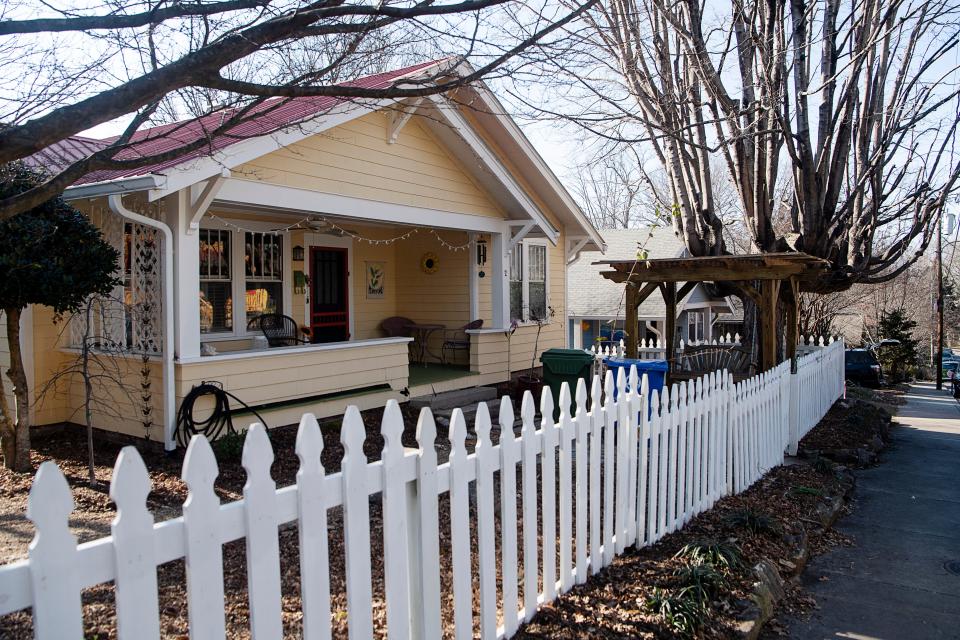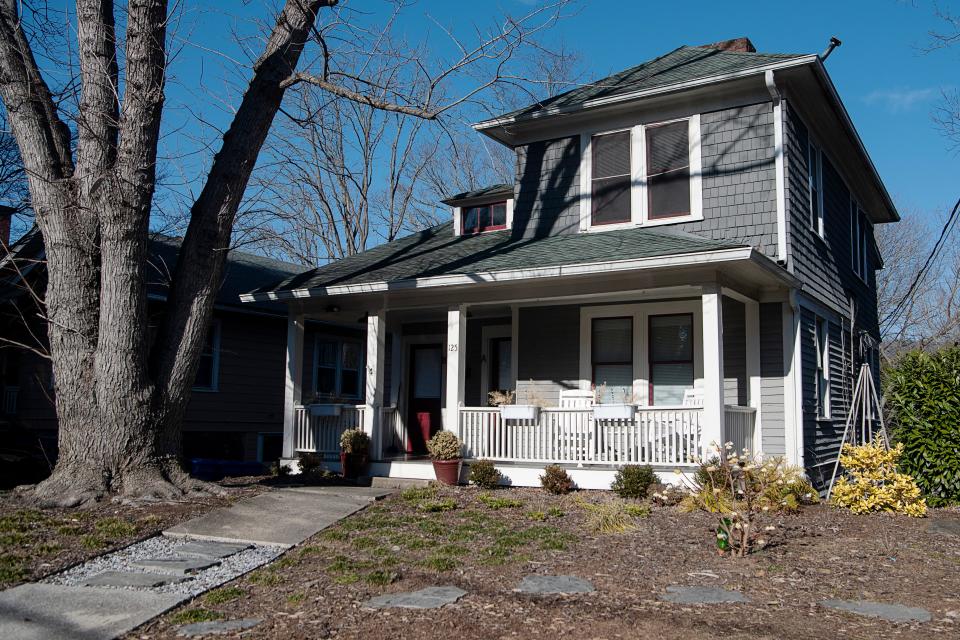Buncombe Airbnb to affordable apartment proposal may cost less than housing subsidies
ASHEVILLE - Buncombe County Commissioners will soon vote on a proposal to develop a program that would pay Airbnb owners between $12,000-$20,000 to convert their properties into affordable housing.
The current estimates to pay Airbnb owners are lower than Buncombe County's average subsidy for a new affordable housing unit through the Affordable Housing Services Program, county reports indicate.
The short-term rental conversion incentive program was first discussed in December as Buncombe County put out a request for a proposal for the project. Only Thrive Asheville, a local nonprofit, submitted a proposal.

A vote on the program was originally scheduled during the April 2 commission meeting but was postponed to an as-yet undetermined commission date.
During a March 19 Buncombe County Affordable Housing Committee Meeting, Director of Strategy and Innovation Rafael Baptista spoke on the proposal, which is estimated to cost between $240,000-$390,000 if implemented.
The average subsidy for an affordable housing unit built with Affordable Housing Services Program funding is $20,000, according to meeting documents. The current Thrive Asheville estimate to convert Airbnbs to affordable housing is between $12,000 and $19,500 per unit — making the low-end estimate of $8,000 significantly cheaper than subsidizing.
Current policy requires units funded through the Affordable Housing Services Program to be deemed affordable for 20 years.
Under the current proposal, payouts to landlords would be distributed over time at the signing of the first lease, when the first lease hits six months and when the first lease is over, Baptista said.
The process would begin with a 1–3-month discovery phase, which would cost around $15,000, Baptista said, as the committee would seek input to understand how incentives could affect the housing market.
"Ultimately, what we are trying to understand out of this discovery phase is: Will this program work?" Baptista said, noting the discovery period would likely last from May to July.
After the initial phase is over, a financial incentive amount and the tenant recruitment and selection process will be the "blueprint for the pilot implementation," Baptista said. If the county does not believe the project will work after the discovery phase, the contract for the project will end.
Though no vote was taken during the April 2 meeting, several community members — many identifying as Airbnb owners or operators — spoke on the voucher proposal and other recently proposed Airbnb regulations.
Chip Craig, owner and founder of Greybeard Realty and Rentals, called the program to pay for rental conversions "crazy."
"The market is correcting itself and returning to normal. Short-term rentals are already converting to long-terms. Why waste taxpayer money rewarding people that are already converting," Craig said during the meeting.
Craig told the Citizen Times he believes the commission is focusing on Airbnbs because they are "afraid to make the hard decisions like running sewer lines, increasing permits and making it easier to build."
"They are avoiding that topic," Craig told the Citizen Times.
More: Downtown Asheville condo owners file lawsuit after illegal Airbnbs play 'hide and seek'

The proposal to convert rentals also comes as the Buncombe County Planning Board works through proposed short-term rental regulations. Community members in support of Airbnb regulations have expressed concerns about community character and diminishing affordable housing as the short-term rental market continues to grow.
In February 2024, nightly demand for short-term vacation rentals in Buncombe grew 112% compared to February 2019, according to AirDNA data released through the BCTDA. The reported Airbnb nightly demand for February 2024 was 94,300 rooms.
After the recent period of rapid growth, local realtors have reported seeing Airbnbs flip back onto the rental market.
Seth Connelly, a realtor with the Asheville-based Town and Mountain Realty, said he often sees Airbnbs flip to long term rentals, with some coming online as fully furnished rentals as the market adjusts.
"If you look in the rental market, there's a lot of fully furnished rentals that were previously short-term rentals that people are either trying to take off the market or stay rented," Connelly told the Citizen Times.
Occupancy for Airbnbs in the area has remained flat at around 40%, only up one percentage point since 2019, according to AirDNA data. The number is 10 percentage points lower than hotel occupancy.
"People expect it to be 85% occupancy all the time," Connelly said. "And that's just not the reality."
More: East Asheville 95-home development gets planning board OK; Haw Creek asks for more time
More: Downtown Asheville condo owners file lawsuit after illegal Airbnbs play 'hide and seek'
Will Hofmann is the Growth and Development Reporter for the Asheville Citizen Times, part of the USA Today Network. Got a tip? Email him at WHofmann@citizentimes.com. Please help support this type of journalism with a subscription to the Citizen Times.
This article originally appeared on Asheville Citizen Times: Buncombe Airbnb to affordable unit plan estimated to cost up to $390k

